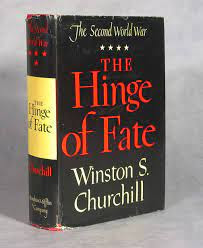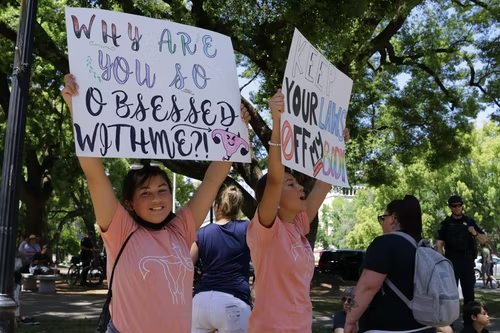My review of Winston
Churchill’s Triumph and
Tragedy (1953)
Part VI of Winston
Churchill’s World War II memoirs
(Rating 4 of 5)
In the
final volume in his memoirs of World War II Winston Churchill takes us from the
beginnings of D-day to the final destruction of Hitler’s Germany and the
creation of the bi-lateral post-war world that would consumed by what we refer
to as the Cold War. Throughout the final
books in this volume you feel that Churchill is more and more the man
abandoned. On side he has Roosevelt
dying on him and having to cultivate a new relationship with Truman. On the other side he has Stalin ever
increasing his grip on Eastern Europe building what Churchill would later the
call the Iron Curtin. In the end he is ultimately abandoned by the British
people who had led to victory in this conflict when in their first opportunity
to choose a government in ten years they toss him out.
In the
beginning of the book D-Day is ongoing Churchill sees all of this through
letters of the various commanders. As
the allies push through he makes the point that it was in Allies’ good luck
that Hitler focused less on bombers and instead just missiles. For as the Allies pushed through German
forces’ abilities proved inefficient compared to the technological prowess of
the Allies.
As the war pushes on it becomes clear that the Allies are going to win it is no longer of ‘if’ but ‘when.’ At this point plans are going to have to be made. What if Hitler himself offers unconditional surrender? There was a strong feeling that they should not negotiate with war criminals. So they refuse Hitler’s hypothetical offer and anyone else who was in the Nazi hierarchy. Instead wait for some other government to come to power to surrender. I wonder however if by holding this view Churchill would be subjecting this hypothetical peace government to the same blame the Weimar Republic had after the last war.
It was
important to come up with a plan and be able to adapt to changing circumstances
but on the Atlantic Churchill’s most powerful friend was becoming weaker and
weaker as his physical condition continued to deteriorate.
“I lunched there on September 19. Harry Hopkins was present. He was obviously invited to please me. He explained to me his altered position. He had declined in the favour of the President. There was a curious incident at the luncheon, when he arrived a few minutes late and the President did not even great him. It was remarkable how definitely my contacts with the President improved and our affairs moved quicker as Hopkins appeared to regain his influence. In two days it seemed to be like old times. He said to me, ‘You must know I am not what I was.’ He had tried too much at once. Even his fullness of spirit broke under his variegated activities.” (p. 161)
Roosevelt with little time left.
One thing Churchill tries to dispel
is the myth of Yalta. That Roosevelt’s
growing weakness contributed to the Allies getting fleeced. One thing Churchill would later point out of
the agreement itself was so bad why did Stalin violate it? He also has to defend against the point that
Britain went to war to protect Poland but when it came to Poland it seemed that
Stalin got his way almost every time.
Churchill would continue to defend the decisions that were made while
reminding everyone that they still needed the help of the Soviet Union.
“It is not permitted to those charged with dealing with events in times of war or crisis to confine themselves purely to the statement of broad general principles on which good people agree. They have to take definite decisions from day to day. They have to adopt postures which must be solidly maintained, otherwise how can any combinations for action be maintained? It is easy after the Germans are beaten, to condemn those who did their best to hearten the Russian military effort and to keep in harmonious contact with our great Ally, who had suffered so frightfully. What would have happened if we had quarreled with Russia while the Germans still had three or four hundred divisions on the fighting front? Our hopeful assumptions were soon to be falsified. Still they were the only ones possible at the time.” (p. 402)
Yalta
On his new American ally in
President Harry Truman, he was very impressed how quickly Truman seemed to
grasp matters. He did have some
suspicions on some issues he may have been just piggy-backing off of
Roosevelt’s policy.
“President Truman’s first political cat which concerned us was to take up the Polish question from the point where it stood when Roosevelt died, only forty-eight hours earlier. The document in which this was set fourth must of course have been far advanced in preparation by the State Department at the moment the new President succeeded. Nevertheless it is remarkable that he felt able so promptly to commit himself to it amid the formalities of assuming office and the funeral of his predecessor.” (p. 486)
New Ally
Churchill was not given the
opportunity to finish his own story. As
they were heading to the Conference to which the post-war world was to be build
his party was defeated at the poles. It
should be noted that when this volume was printed Churchill was once again the
prime minister but the defeat in the election after victory in war hurt
him. You can easily detect his
bitterness in his statements about his resignation.
“In ordinary circumstances I should have felt free to take a few days to wind up the affairs of the Government in the usual manner. Constitutionally I could have awaited the meeting of Parliament in a few days’ time, and taken my dismissal from the House of Commons. This would have enabled me to present before resignation the unconditional surrender of Japan to the nation. The need for Britain being immediately represented with the proper authority at the Conference, where all the great issues we had discussed were now to come to a head, made all delay contrary to the public interest. Moreover, the verdict of the electors had been so overwhelmingly expressed that I did not wish to remain even for an hour responsible for their affairs.” (p.675)
In closing I have to admit I found
Mr. Churchill’s memoirs somewhat difficult to get through they lacked the
narrative appeal of his History of the
English Speaking Peoples. Often
things would be dragged down with long drown out letters that he easily could
have summarized. I think I will take a
break from memoirs for a little while.




















































